Cardiac disorders
Cardiac disorders include
- Heart valve disorders
- Pericardial disorders
- Congenital heart disorders
- Ischaemic heart disorders
- Heart rhythm disorders
- Heart muscle disorders
- Heart failure
- The category you were looking for was not found. Please try another one.
- List is empty.

Angina pectoris
Angina pectoris, or angina pectoris, is one form of ischemic heart disease. It arises as a result of a mismatch between the need and the supply of blood, and therefore also oxygen and nutrients, to the heart. It typically occurs with increased physical or mental stress. Attacks of angina pectoris recur and are manifested by pressure or animal pain in the chest.
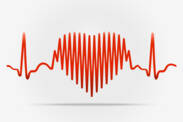
Arrhythmia
Arrhythmia is a disorder of the heart rhythm. Arrhythmia refers to a slowed or accelerated rhythm of the heart as well as various uncoordinated movements of the heart muscle, and thus the atria or ventricles.
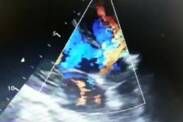
Atrial and ventricular septal defect
A defect in the atrial and ventricular septum is a heart defect and a disease of the atrial or ventricular septum that causes communication between the right and left hearts so that oxygenated and deoxygenated blood mix. It is a congenital heart defect, whereby mixed oxygenated and deoxygenated blood is distributed throughout the body, which can cause major problems. Very often such defects appear in childhood, but it also depends on the size of the defect, sometimes they appear in adulthood.
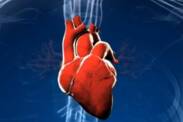
Atrial fibrillation
Atrial fibrillation is the most common heart disorder and is characterized by arrhythmia or heart rhythm disorder. The disease causes chaotic and irregular contractions of muscle fibers and thus loss of coordinated activity of the atria. At the same time, the heart weakens its pumping ability and at the same time, irregular and accelerated heart activity occurs. The disease is most common in people over 80 years of age, where it affects 15% of the population.

Cardiac tamponade
Cardiac tamponade ranks as an emergency condition that requires immediate treatment. It is manifested by failure of the heart to function as a pump, even death.
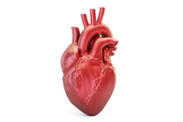
Cardiomyopathy
Cardiomyopathy refers to a group of diseases that affect the heart muscle, the myocardium. We know several forms, they have different symptoms and also different treatments.

Congenital Cardiac Defects
Congenital heart defects arise even during intrauterine development. The defective development affects the heart and blood vessels. It manifests itself immediately after birth, but in some cases later in childhood or in adulthood.

Endocarditis
Endocarditis is a disease of the inner lining of the heart. It is an inflammatory disease that in most cases has an infectious origin. However, not always.
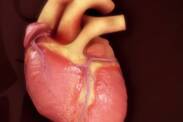
Fallot tetralogy
Fallot tetralogy is congenital heart disease and the most common cyanotic heart defect. It is a disease of the heart and large vessels, and it occurs mainly in childhood, sometimes in adulthood, but then the patient is less burdened by the disease and may not manifest itself in any particular way. The disease is often accompanied by other cardiac and vascular defects, such as coronary artery defects or an opening in the septum between the atria directly in the heart.

Heart failure
Heart failure: a condition in which the heart is unable to pump blood to the body and supply organs or tissues with oxygen and nutrients.

Heart Tumors
Heart tumors endanger human health and life due to several complications. They can grow directly from the heart or metastasize to it.

Heart valve disease
Heart valve disease, or valvular heart disease, is a possible source of health problems such as fatigue, dizziness, fainting, palpitations, chest pain or shortness of breath. Heart valve failure can lead to heart failure.

Ischemic heart disease
Ischemic heart disease, also known as coronary heart disease, bothers us with insufficient blood supply to the heart. The main reason is the involvement of the heart, ie coronary vessels. It can be in acute or chronic form. The dreaded heart attack also includes the acute type.
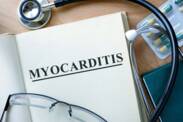
Myocarditis
Myocarditis is an inflammatory process of the heart muscle. Inflammation of the heart muscle can cause a decrease in heart function. What are the causes, first symptoms and current treatment options for myocarditis?
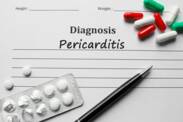
Pericarditis
Pericarditis refers to an inflammatory process of the outer lining of the heart (pericardium). It has different etiologies. What is the cause of pericarditis, the first symptoms and treatment options?

Pulmonary heart disease - cor pulmonale
Pulmonary heart disease is the enlargement of the heart as a result of a lung disease. There is an acute and a chronic form.









